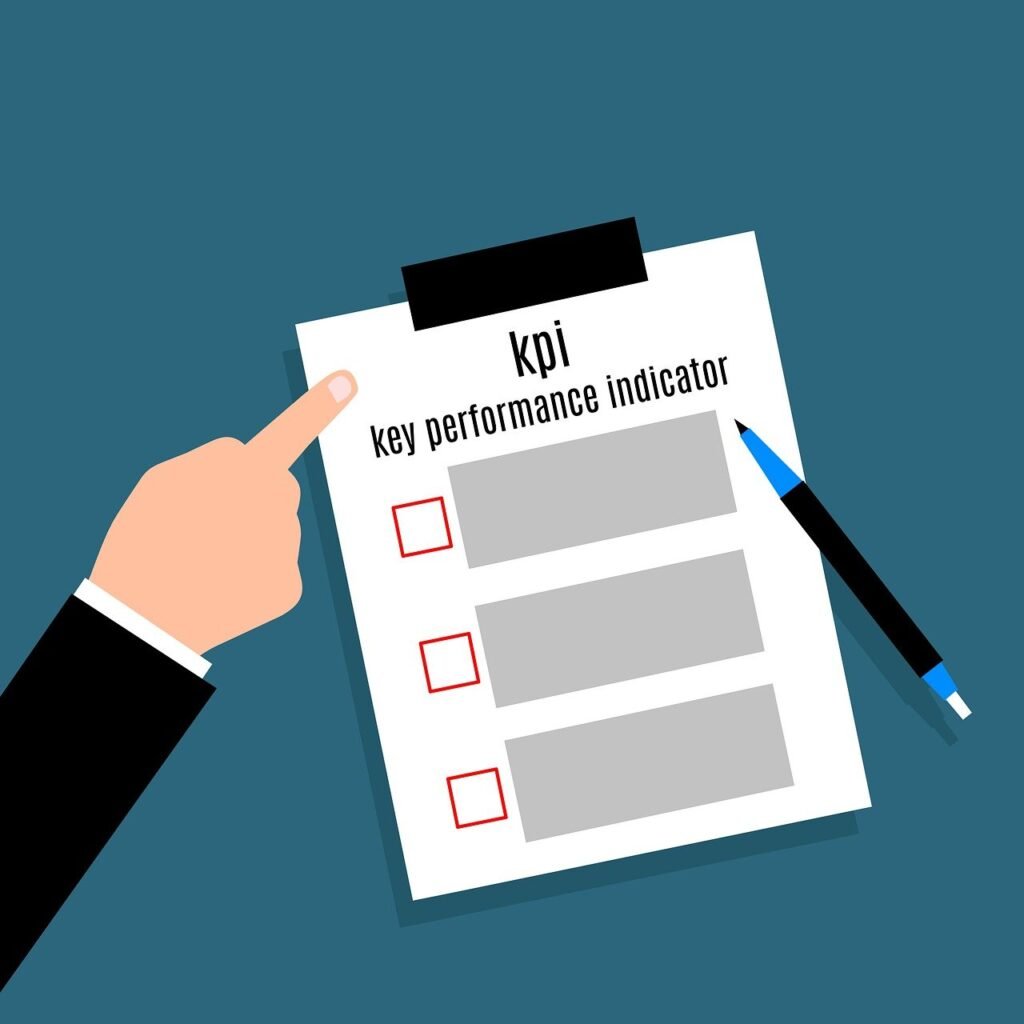This Article has been revised, edited and added to, by Poulomi Chakraborty.
- Beginning the Journey: Why KPIs Matter in Travel SEO
- Deciphering the Digital Traveler's Journey
- Converting Metrics into Actionable Insights
- Staying Ahead in a Competitive Landscape
- Ensuring Optimal Resource Allocation
- Building Trust and Credibility
- Predicting and Preparing for the Future
- The Role of KPIs in Navigating the SEO Landscape
- Leveraging KPIs for Competitive Advantage
- Maximizing Resource Efficiency with KPIs
- Building Trust Through Transparency
- The Path Forward with KPIs
- Navigating the Travel SEO Landscape: Core KPIs to Monitor
- Delving Deeper: Advanced KPIs for Enhanced Travel SEO Insight
- Average Session Duration
- Pages Per Session
- Top Exit Pages
- Backlink Profile
- Mobile Performance and Load Time
- User Reviews and Feedback
- Strategic Empowerment Through Advanced KPI Analysis
- Integrating Advanced KPIs into Business Strategy
- Nurturing a Data-Driven Organizational Culture
- Charting a Course to Success with Advanced KPIs
- Conclusion: The Compass of Success in Travel SEO
In today’s digital landscape, where every travel dream begins with a search query, ensuring your travel website’s visibility has never been more critical. But in the vast realm of Search Engine Optimization (SEO), how can businesses in the travel industry gauge their success? How can they discern if their efforts are leading them towards their desired goals or if they’re veering off course? This is where Key Performance Indicators (KPIs) come to the rescue.
KPIs serve as the navigational stars for your SEO journey. They provide quantifiable metrics that can help travel businesses understand the effectiveness of their SEO strategies, measure their online success, and refine their approaches for better results. In this comprehensive guide, we will unravel the intricate web of KPIs specific to travel SEO, ensuring that your digital endeavors always remain on the right track.
Beginning the Journey: Why KPIs Matter in Travel SEO

In the rapidly changing world of online travel, KPIs (Key Performance Indicators) have emerged as pivotal instruments to measure success, provide clarity, and fine-tune strategies. Their importance in the realm of travel SEO (Search Engine Optimization) cannot be overstated. Here’s an in-depth look at why KPIs are indispensable in the travel SEO domain.
Deciphering the Digital Traveler’s Journey
- Understanding Touchpoints: The modern traveler interacts with numerous digital touchpoints, from initial destination research to comparing prices and reading reviews. KPIs help businesses comprehend which stages of the journey they’re most impactful at and where they might be lacking presence.
- Personalized Experiences: With KPIs, businesses can tailor offerings based on user behavior. For instance, if a significant portion of users searches for eco-friendly accommodations, a travel website can prioritize and highlight green travel options.
Converting Metrics into Actionable Insights
- Prioritizing Efforts: Not every SEO effort yields the same ROI. KPIs allow travel businesses to determine which strategies are most effective and deserving of further investment.
- Identifying Gaps: Without KPIs, businesses might operate in the dark, unaware of missed opportunities or areas of potential growth. By evaluating KPIs, travel companies can recognize gaps in their strategies and rectify them.
Staying Ahead in a Competitive Landscape
- Benchmarking Against Competitors: The travel domain is teeming with competition. KPIs provide a tangible measure to compare a business’s digital performance against its competitors, helping to understand market position better.
- Adapting to Market Dynamics: The preferences and behaviors of travelers evolve. KPIs can help detect shifts in market dynamics, enabling businesses to pivot their strategies in line with changing trends.
Ensuring Optimal Resource Allocation
- Budget Optimization: By tracking KPIs, travel businesses can determine the effectiveness of their SEO campaigns, ensuring that marketing budgets are allocated to strategies that yield the highest returns.
- Time Management: Understanding which SEO efforts are the most fruitful allows businesses to prioritize tasks, ensuring that time and energy are spent on high-impact activities.
Building Trust and Credibility
- Transparency with Stakeholders: By regularly tracking and sharing KPIs, travel businesses can maintain transparency with stakeholders, building trust and showcasing their commitment to continuous improvement.
- Ensuring User Satisfaction: Monitoring KPIs like bounce rate or average session duration can provide insights into user satisfaction. A low bounce rate, for example, indicates that visitors find the content relevant and engaging, which can boost the credibility of the site.
Predicting and Preparing for the Future
- Trend Analysis: Evaluating KPIs over extended periods can help businesses discern patterns, providing invaluable insights into future trends and allowing them to be better prepared.
- Innovation Catalyst: Recognizing areas of improvement through KPIs can spur innovation. For instance, if mobile conversions lag despite high mobile traffic, it might prompt a business to rethink and innovate its mobile booking experience.
The Role of KPIs in Navigating the SEO Landscape
KPIs are more than mere numbers on a dashboard; they are vital tools that provide insights into the effectiveness of your SEO strategies. For startup founders in the travel sector, where competition is fierce and resources are often limited, KPIs can be the compass that guides strategic decisions, from content creation to marketing campaigns and beyond.
Strategic Alignment and Goal Setting
One of the primary advantages of KPIs is their ability to align SEO efforts with the overall business strategy. By setting specific, measurable, achievable, relevant, and time-bound (SMART) goals, startups can ensure that every SEO action contributes to broader business objectives. This strategic alignment is crucial for maintaining focus and directing limited resources to the most impactful areas.
Actionable Insights for Tactical Adjustments
KPIs also serve as a feedback loop for startups, offering actionable insights that can lead to tactical adjustments in real-time. In the dynamic digital landscape, the ability to pivot and adapt based on performance data is invaluable. For example, if analysis reveals that certain content types are driving significantly more engagement or conversions, a startup can quickly shift its content strategy to capitalize on these insights.
Leveraging KPIs for Competitive Advantage
In the crowded travel market, standing out requires more than just understanding your audience and offering compelling services. It demands a strategic approach to SEO, grounded in data and insights from well-chosen KPIs.
Understanding Market Position and Competitor Performance
KPIs can help startups understand not just their performance but also how they stack up against competitors. By monitoring similar metrics across competitors, startups can identify industry benchmarks and set realistic yet ambitious targets for their SEO efforts. This competitive analysis is key to identifying opportunities for differentiation and strategic positioning in the market.
Predictive Analytics and Future Planning
Advanced KPIs, especially those that track trends over time, can provide startups with predictive insights into future market dynamics. This foresight enables founders to make informed decisions about where to invest their efforts and resources, anticipating shifts in consumer behavior or technological advancements before they fully manifest.
Maximizing Resource Efficiency with KPIs
For startups, where every dollar and hour spent must yield a return, KPIs are crucial for maximizing efficiency.
Budget Allocation and ROI Optimization
By closely monitoring KPIs related to conversion rates, traffic sources, and customer acquisition costs, startups can optimize their marketing budgets, allocating funds to the channels and strategies that offer the highest return on investment. This careful budget management is essential for sustaining growth in the competitive travel industry.
Time Management and Prioritization
Similarly, KPIs can inform time management decisions, helping startups prioritize their efforts on high-impact activities. Whether it’s content creation, technical SEO optimizations, or user experience improvements, understanding which actions drive the most significant improvements in key metrics can help founders and their teams focus their energies where it matters most.
Building Trust Through Transparency
Finally, KPIs can play a critical role in building trust with stakeholders, from investors to partners and customers. Regularly sharing insights from KPI tracking not only demonstrates a commitment to data-driven decision-making but also builds credibility by showcasing the startup’s progress toward its goals.
The Path Forward with KPIs
As startup founders in the travel sector embark on their SEO journey, KPIs will be indispensable navigational tools. By providing a framework for strategic alignment, offering actionable insights for tactical adjustments, enabling competitive analysis, and maximizing resource efficiency, KPIs can guide startups through the complexities of the digital landscape.
The key to success lies in selecting the right KPIs, interpreting them within the broader business context, and being willing to adapt based on what the data reveals. In this way, KPIs are not just indicators of performance but beacons guiding startups towards sustainable growth and success in the travel industry.
Navigating the Travel SEO Landscape: Core KPIs to Monitor

In our digital age, every travel dream starts with a search online. Thus, it’s imperative for travel businesses to ensure their website’s visibility. As SEO is vast, how can these businesses measure their success? This is where KPIs step in, acting as guiding metrics for your SEO journey.
The Significance of KPIs in Travel SEO
- Understanding the Digital Traveler: Every step in a traveler’s journey, from dreaming about a location to making the final booking, involves online interaction. KPIs aid in measuring your website’s significance at each of these points.
- Translating Metrics to Insights: There’s an abundance of metrics in SEO. For the travel sector, certain KPIs offer profound insights, turning numbers into actionable insights.
- Achieving a Competitive Advantage: The travel sector is cutthroat. Monitoring the right KPIs can offer insights into market position and strategy formulation.
Essential KPIs in Travel SEO
- Organic Traffic Volume: This metric indicates the count of visitors arriving at your travel site via unpaid searches. Growth in organic traffic suggests successful SEO strategies. Tip: Segment your traffic based on geographical regions to tailor specific offerings.
- Keyword Rankings: This involves monitoring your website’s position for travel-related keywords on search engines. High rankings can lead to increased traffic. Tip: Target not just generic but also specific keywords to attract a niche audience.
- Click-Through Rate (CTR): This measures the fraction of users who click on your search listing. High rankings without clicks mean missed opportunities. Tip: A/B test meta descriptions or titles to boost CTR.
- Bounce Rate: A high bounce rate indicates content misalignment. Improve relevance and content quality to decrease this. Tip: Analyze which pages have elevated bounce rates and optimize accordingly.
- Conversion Rate: Measures the fraction of visitors who undertake desired actions on your site. Tip: Track conversion rates separately for desktop and mobile.
Advanced KPIs for Deeper Insights
- Average Session Duration: This indicates user engagement levels. Prolonged durations suggest captivating content. Tip: Introduce interactive elements to extend session durations.
- Pages Per Session: Reflects how many pages a user explores in one session. Higher numbers suggest effective internal linking. Tip: Develop content clusters or “content journeys” to guide users.
- Top Exit Pages: Determine potential issues by noting where most users depart. Tip: Use exit-intent pop-ups offering deals or sign-ups.
- Backlink Profile: Quality backlinks from trustworthy sources enhance your site’s credibility. Tip: Collaborate with influencers or bloggers for guest posts to drive quality backlinks.
- Mobile Performance: A significant number of users research and book via mobile, so optimize your mobile site experience. Tip: Leverage tools like Google’s Mobile-Friendly Test for optimal mobile experience.
- User Reviews and Feedback: These offer insights into user experience and potential improvement areas. Tip: Implement feedback mechanisms and use positive reviews as social proof.
The Crucial Interplay of Core KPIs in SEO Strategy
Core KPIs serve as the foundation of a successful SEO strategy, providing actionable insights that guide decision-making and strategy refinement. Their importance in crafting a competitive and responsive SEO strategy cannot be overstated, as they directly impact a travel startup’s visibility, user engagement, and conversion rates.
Refining SEO Through a Holistic View of Core KPIs
Understanding and monitoring Core KPIs is not just about tracking numbers; it’s about interpreting these metrics in the context of broader business objectives and the dynamic digital landscape. This holistic approach enables travel startups to refine their SEO strategies with precision, focusing on areas that drive the most value for their business and their customers.
Enhancing Content Strategy with Core KPI Insights
At the heart of travel SEO lies a content strategy that resonates with the target audience. Core KPIs provide invaluable insights into what content performs best, informing content creation, optimization, and distribution efforts. This strategic alignment of content with user preferences and search trends can significantly enhance a website’s SEO performance and user engagement.
Unlocking Growth Opportunities with Advanced KPI Analysis

Beyond the basic tracking of traffic and rankings, Core KPIs offer a gateway to deeper analysis and understanding of user behavior and SEO effectiveness. This advanced analysis can uncover hidden opportunities for growth, optimization, and innovation in a travel startup’s SEO strategy.
User Experience Optimization for Enhanced SEO Performance
User experience is a critical component of SEO success. Core KPIs related to user engagement, such as page load time, mobile responsiveness, and interactive elements, provide direct insights into how users interact with a travel website. By optimizing these aspects, startups can improve their SEO rankings, reduce bounce rates, and increase conversions, creating a more engaging and rewarding user experience.
Leveraging Geographic and Demographic Insights for Targeted Marketing
Travel startups can gain a competitive edge by analyzing Core KPIs through the lens of geographic and demographic data. This targeted approach allows for the customization of marketing efforts and content to specific audiences, enhancing relevance, engagement, and conversions. Tailoring SEO and content strategies to cater to the preferences and behaviors of specific user segments can lead to more efficient resource allocation and higher ROI.
Building a Data-Driven Culture Around Core KPIs
Embedding a culture of data-driven decision-making within a travel startup is essential for leveraging the full potential of Core KPIs. This cultural shift ensures that every team member understands the importance of KPIs in shaping the company’s SEO strategy and overall business success.
Fostering Collaboration and Accountability through KPI Tracking
Effective KPI tracking fosters a sense of collaboration and accountability among team members. By regularly reviewing and discussing Core KPIs, teams can align their efforts towards common goals, share insights, and collectively strategize on improvements. This collaborative approach accelerates problem-solving and innovation, driving more effective and cohesive SEO strategies.
Navigating Towards Success with Core KPIs
The journey through the landscape of travel SEO is a continuous process of learning, adapting, and optimizing. Core KPIs are the compass that guides travel startups through this journey, providing the insights and direction needed to navigate the complexities of digital marketing.
By deeply understanding and strategically leveraging these KPIs, startup founders can unlock new growth opportunities, enhance user engagement, and build a strong competitive advantage in the travel industry.
Embracing a holistic and data-driven approach to Core KPIs is not just about monitoring performance; it’s about shaping the future of travel startups in the digital age.

Related: Check out our free SEO suite

Delving Deeper: Advanced KPIs for Enhanced Travel SEO Insight
The digital realm of travel is more than just surface metrics. To truly understand the performance of your travel website and to optimize for better results, you need to explore advanced Key Performance Indicators (KPIs). These sophisticated metrics offer deeper insights into user behavior, site efficiency, and overall digital impact. Let’s delve deeper into these advanced KPIs and understand their significance in the travel SEO landscape.
Average Session Duration
What it is: The average time a user spends on your site during a single visit.
Why it’s crucial: For travel websites, rich with descriptive content, captivating images, and enticing offers, a longer session duration is an indication of the site’s ability to engage users. This suggests that users are finding value in the content and are willing to spend time exploring. Pro Tip: Enhance content with multimedia elements. Embedding videos, slideshows, or interactive maps can keep visitors engaged for longer.
Pages Per Session
What it is: This KPI reflects the average number of pages a user views during a single visit.
Why it’s crucial: A higher number indicates effective site navigation and intriguing content, encouraging users to explore more pages. Pro Tip: Implement a “Recommended Reads” or “You Might Also Like” section at the end of articles or itineraries to guide users to additional relevant content.
Top Exit Pages
What it is: Pages from which users most frequently leave your site.
Why it’s crucial: Identifying and analyzing these pages can shed light on potential content or technical issues, allowing for necessary optimizations. Pro Tip: Besides exit-intent pop-ups, consider conducting user surveys or heat map studies on these pages to pinpoint issues that might be causing the exits.
Backlink Profile

What it is: A comprehensive look at the external sites linking back to your website.
Why it’s crucial: Quality backlinks enhance your site’s authority and credibility in search engines, which can improve search rankings. For travel sites, this could be mentions from reputable travel blogs, press releases, or industry accolades. Pro Tip: Regularly audit your backlink profile to remove or disavow low-quality or spammy links that could harm your site’s reputation.
Mobile Performance and Load Time
What it is: How efficiently your site loads and functions on mobile devices.
Why it’s crucial: A significant portion of travel research, planning, and even bookings now occur on mobile. Slow or glitchy mobile performance can deter potential customers. Pro Tip: Implement Accelerated Mobile Pages (AMP) to streamline content and ensure rapid load times on mobile devices.
User Reviews and Feedback
What it is: Direct feedback from users about their experience on your site or with your service.
Why it’s crucial: This gives an unfiltered view of areas where your site excels and where it might fall short. Positive reviews can enhance credibility, while constructive feedback can provide clear areas for improvement. Pro Tip: Engage with users who leave feedback. Thank them for positive reviews and address any concerns or criticisms proactively.
Strategic Empowerment Through Advanced KPI Analysis
Advanced KPIs go beyond surface-level metrics, offering a granular view of performance, user behavior, and market dynamics. This depth of insight empowers startups to make informed, strategic decisions that can dramatically enhance their SEO efforts and overall digital marketing efficacy.
Crafting User-Centric Experiences
At the core of a successful travel SEO strategy lies a deep understanding of the user’s online journey. Advanced KPIs such as User Flow and Heat Maps provide a detailed view of how users interact with your site, from the pages they visit to the content that captures their attention. By analyzing these patterns, travel startups can craft more engaging, user-centric experiences that not only improve SEO rankings but also increase conversion rates and customer loyalty.
Predictive Analytics for Proactive Strategy
The ability to predict and respond to future trends gives startups a competitive edge. Advanced KPIs, including trend analysis for search queries and user engagement over time, equip businesses with predictive insights. These analytics enable startups to anticipate market shifts, evolving traveler preferences, and emerging SEO opportunities, allowing for proactive strategy adjustments.
Integrating Advanced KPIs into Business Strategy

To truly benefit from advanced KPIs, startups must integrate these metrics into their broader business and marketing strategies. This integration ensures that SEO efforts are aligned with overall business goals, maximizing impact and ROI.
Aligning SEO with Business Objectives
By linking advanced KPIs directly to business objectives, startups can ensure their SEO strategy supports broader goals such as market expansion, customer retention, and revenue growth. This alignment helps prioritize SEO initiatives, focusing on those with the greatest potential to drive business outcomes.
Leveraging Data for Cross-Functional Synergy
Advanced KPIs offer valuable insights that extend beyond the marketing department. For instance, data on popular content and user engagement can inform product development, while insights into geographic trends may influence strategic decisions about market focus. Encouraging cross-functional use of KPI data fosters a culture of collaboration and innovation, driving synergies that can propel the business forward.
Nurturing a Data-Driven Organizational Culture
The shift towards advanced KPI analysis requires a data-driven culture where decisions are based on insights rather than intuition. Cultivating this culture within a startup is essential for leveraging the full potential of advanced KPIs.
Fostering Data Literacy Across the Team
Ensuring team members understand how to interpret and act on KPI data is crucial. Educational initiatives, regular data review sessions, and open discussions about KPI interpretations can enhance data literacy across the organization, empowering teams to make more informed decisions.
Embracing Agility and Continuous Learning
The digital landscape is ever-evolving, with new trends, technologies, and competitor strategies emerging constantly. A culture that values agility and continuous learning enables startups to adapt quickly, refining their SEO strategies in response to new insights from advanced KPIs.
Charting a Course to Success with Advanced KPIs
Advanced KPIs offer a deep well of strategic insights that can guide travel startups through the complexities of SEO and digital marketing. By delving deeper into these metrics, founders can gain a nuanced understanding of their online performance, user behavior, and competitive landscape.
Integrating advanced KPI analysis into the broader business strategy and nurturing a data-driven culture are key to unlocking these benefits. With this approach, travel startups can not only navigate the digital terrain but also chart a course to lasting success in the highly competitive travel industry.

One of the innovative strategies I’ve embraced involves harnessing the power of conversational AI, including GPT technology, to personalize customer interactions and enhance engagement across digital channels.
By deploying AI-driven chatbots and virtual assistants, businesses can deliver tailored messaging, provide real-time support, and streamline the customer journey, ultimately driving conversion rates and fostering brand loyalty.
Note that, leveraging GPT for digital marketing involves more than just generating generic content—it’s about crafting compelling narratives, generating authentic conversations, and delivering value-added experiences that resonate with your target audience.
By tapping into GPT’s natural language processing capabilities, I aim to create dynamic, contextually relevant content that captivates and converts, setting our marketing efforts apart from cookie-cutter approaches and fostering meaningful connections with customers.
Tracking the results of our GPT-powered marketing initiatives involves a multi-faceted approach that encompasses key performance indicators (KPIs), sentiment analysis, and customer feedback.
By analyzing metrics such as engagement rates, conversion rates, and customer satisfaction scores, we gain valuable insights into the effectiveness of our content and interactions.
Additionally, leveraging advanced analytics tools and machine learning algorithms enables us to identify patterns, iterate on messaging strategies, and continuously optimize the process to drive superior results over time.
Birute Sutkiene, Accountant, Marketologist and Tech Adviser at GlowBar
Conclusion: The Compass of Success in Travel SEO
Navigating the vast and ever-evolving terrain of SEO can seem as challenging as charting a course through unknown territories. Yet, for the travel industry, which thrives on exploration and discovery, it’s an exciting journey, and KPIs serve as the guiding compass.
Understanding and monitoring these Key Performance Indicators transforms the vast world of SEO from a dense jungle into a well-mapped territory. From gauging the efficacy of your content to ensuring a seamless mobile experience, KPIs provide invaluable insights that enable travel businesses to optimize, innovate, and grow in the digital space.
But remember, much like travel itself, SEO is not just about the destination (or the rankings) but also about the journey. It’s about understanding your audience, anticipating their needs, and delivering value at every digital touchpoint. By keeping a close eye on these KPIs and adapting based on these insights, travel businesses can ensure they’re always on the right path, leading their visitors from mere clicks to unforgettable adventures.
Read Next
- How to Use ClickFunnels: An Explainer
- How to use Leadpages: An Explainer
- How to Use OptiMonk: An Explainer
- How to Use Popup Maker: An Explainer
- How to Use Beeketing: An Explainer




















Comments are closed.